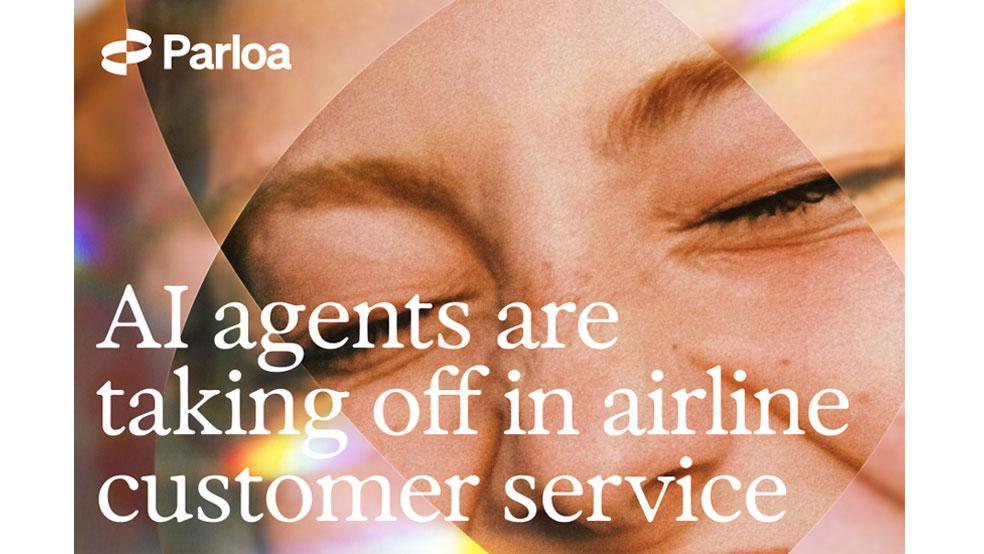
Customer service has always been the pressure point in air travel. It’s where the most emotion shows up, the most trust is won or lost, and, when systems fail, the consequences are public. In 2025, as the industry braces for its busiest year in more than a decade, that pressure is only increasing.
And yet, how airlines handle service today still hinges on systems built for a different era.
If there’s one thing this year’s FTE conference makes clear, it’s that the gap between traveler expectations and operational reality is now too wide to ignore. And closing it will take more than better staffing or smarter FAQs. It’ll require a different approach to how support is delivered—powered, increasingly, by AI agents that can carry more of the load.
Volume isn’t the only problem, variance is
The FAA expects over 50,000 flights per day this summer, and with them, millions of passenger interactions across booking, boarding, baggage, and post-flight recovery. That’s not just scale; it’s complexity. In other words, the real challenge isn’t how many calls come in. It’s how unpredictable they are.
From multilingual support requests to itinerary changes triggered by weather, the nature of airline service is dynamic by design. Yet most support infrastructure still treats it like a linear queue. When contact volumes spike, the fallback is triage: manual escalations, long hold times, and rushed responses that frustrate both travelers and frontline teams.
This is where AI agents show their actual value: not in automating for the sake of automation, but in building systems that can respond intelligently to context, handle variability at scale, and escalate when human intervention is needed.
Voice will define the next wave of travel service
One of the most noticeable shifts in airline service is where conversations start. Customer conversations now begin everywhere: on Instagram DMs, WhatsApp chats, X, and (most importantly) by voice. Social platforms dominate digital engagement, but when there’s urgency (missed flights, real-time disruptions), travelers still pick up the phone.
A few years ago, “AI-powered support” meant a clunky chatbot and a hope that it could redirect people to the help center. That’s no longer the bar. The brands setting the pace in service are those with AI agents that seamlessly handle inbound requests, whether voiced, typed, or tapped.
The reality is travelers don’t experience these channels in isolation. They jump between them as circumstances shift. A rebooking might start in-app, continue over chat, and end on the phone. For airlines, the challenge isn’t just showing up in more places. Instead, it’s making the experience coherent across all of them.
That’s where AI becomes the new user interface (UI). Customers don’t care which channel they’re in; they expect service to travel with them. Delivering that requires multimodal systems that can operate in any language, connect into the airline’s tech stack and partner network, and prove resilient over time. Point solutions that only solve for one channel or one need won’t hold up when disruption hits.
The systems being deployed today, like what Parloa offers, are built to handle high-pressure operational tasks: rebooking flights, pushing out delay notifications, managing live conversations across messaging channels, and routing edge cases to the right team with the right context. They don’t replace human agents; they clear the runway for them.
And this distinction matters. When a customer gets a helpful answer in 10 seconds instead of 10 minutes, they don’t ask whether it came from a person or a model. They just move on.
How Parloa supports travel and hospitality at scale
Across airlines, hotel groups, and online travel agencies, teams are facing the same dilemma: rising expectations, leaner teams, and less margin for error. Parloa’s AI agent management platform (AMP) was built with that reality in mind.
Parloa’s platform provides more than automation; it delivers operational control. Instead of building narrow point solutions, Parloa gives travel and hospitality companies a full-stack platform designed to scale service across markets, languages, and channels without compromising quality.
Here’s how that shows up in practice:
24/7, frictionless support: Parloa’s agents handle bookings, upgrades, cancellations, and changes in natural language, across voice and messaging. No handoffs, no clunky menus. Just fast, intuitive interactions.
Service in 100+ languages: Agents, both AI and human, can speak to guests in their preferred language. That lowers escalation rates, reduces confusion, and shortens time to resolution.
Upsell at the right moment: AI agents don’t guess. They’re trained to identify when to recommend an upgrade or offer, based on context and past behavior. That turns service from cost into revenue without adding pressure on teams.
Personalization that improves over time: Every guest interaction enriches the CRM in real time, allowing the system to adapt. That’s not just better service today; it’s smarter service tomorrow.
Bringing measurable value, not just better service
Several of the world’s largest travel brands are already putting these capabilities to work.
Berlin Brandenburg Airport (BER) launched its AI-powered BER Agent, built on Parloa’s agentic AI platform, to provide 24/7, multilingual support without wait times. The initiative was even recognized at Future Travel Experience in Dublin with the “Most Innovative Airport Initiative” award.
When International Airlines Group (IAG) looked to standardize and improve service across markets, it chose Parloa to deliver real-time translation and AI-assisted support. That work earned Parloa IAG’s “Best Innovation in Customer Service” award.
Another global travel brand, one of the largest online travel agencies, benchmarked 14 AI vendors before selecting Parloa. What tipped the scale? The ability to convert routine interactions into revenue, with smarter upsell prompts and automated CRM enrichment that actually moved the needle.
Tourism leader TUI followed a similar path. With Parloa, the company was able to scale multilingual support, cut response times, and boost service consistency across markets—enough to win its own customer service innovation award.
None of these companies deployed AI agents for the sake of it. They did it to solve the same core challenge: how to serve more customers, better, without burning out their teams.
That said, not everything can, or should, be automated
Automation works best when it’s invisible. High-volume, low-variation tasks should be handled by systems. Sensitive, complex, or emotional cases should be escalated—with context, not just a ticket ID.
This is where many AI implementations fall short. They either over-index on containment or introduce handoffs that are incomplete, inconsistent, or unintelligible.
Parloa’s platform was designed to solve this. When an AI agent escalates, it transfers everything, such as conversation history, customer context, and intent tags. All so human agents can pick up without starting over.
That’s what it means to work in tandem, not at odds.
Final boarding call
Travelers don’t care what your tech stack looks like. They care whether you responded when it counted. Whether the message went through. Whether someone, or something, understood the problem and did something about it.
In that sense, AI agents aren’t a “future” of service. Because the real question isn’t whether to deploy them. It’s how well they’re designed, and what kind of work they’re actually doing.
Parloa is already working with some of the world’s largest airlines and travel brands to make this shift real. Learn more at parloa.com.





